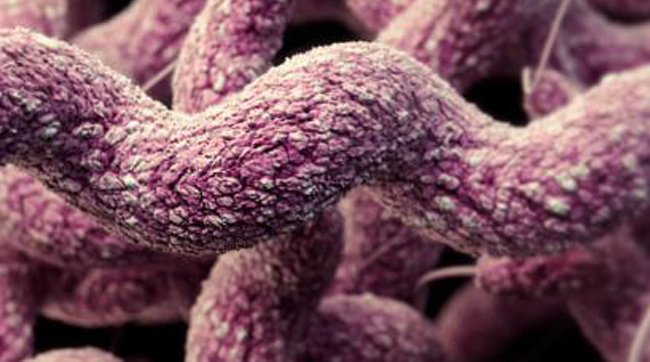WASHINGTON, D.C. (March 5, 2019) — The Milken Institute School of Public Health (Milken Institute SPH) at the George Washington University (GW) today announced a $1.2 million grant from the Bill & Melinda Gates Foundation to identify possible routes of transmission of Campylobacter bacteria in a rural area of Bangladesh.
Amira Roess, PhD, MPH, the principal investigator of the project and an assistant professor of global health at Milken Institute SPH, will lead the international, multi-disciplinary team to investigate the various factors that lead to Campylobacter-caused diarrheal disease in humans.
“We’re examining all the different ways children and their family members can be exposed to these harmful bacteria,” Roess said. “This interdisciplinary study allows us to look at the problem in a unique way. Ultimately, we hope to find possible interventions that could prevent these potentially lethal bacterial infections.”
Campylobacter bacteria is one of four key global causes of diarrheal diseases, and can be fatal among very young children, elderly, and immunosuppressed individuals, according to the World Health Organization. Campylobacter bacteria is also associated with cognitive deficits and long-term neurological conditions such as Guillain-Barre Syndrome (GBS).
Roess has assembled a team of microbiologists, food biologists, epidemiologists, veterinarians, and others, to work on the two-year study. The longitudinal study will take place in Mirzapur, an area about 30 miles from Dhaka, Bangladesh. The team includes co-investigators Samir Saha and Senjuti Saha from Child Health Research Foundation in Bangladesh and Professor John Wain from the Quadram Institute in England. Wain leads a research program developing new technologies to detect pathogens and antibiotic resistance throughout the food chain.
“At the Quadram Institute, we are very excited to be working with scientists from the Child Health Research Foundation in Bangladesh and the Milken Institute School of Public Health,” Wain said. “This multidisciplinary team brings together experts from diverse fields of research and represents a genuine One Health approach to the investigation of major human disease.”
Campylobacter bacteria is commonly transmitted through undercooked poultry or direct contact with infected animals or humans. However, little is known about how Campylobacter infects young children, particularly those who have little to no contact with poultry or infected animals. The team will study people living in communities with and without poultry production to uncover other potential sources of disease, such as contaminated water and wildlife.
Researchers will collect fecal samples from pregnant women in their third trimester and throughout their newborns’ first nine months of life, as well as samples from siblings, poultry, wild birds and other animals near the household, soil and drinking water. The researchers will also gather information about human and animal interaction, human illness and health care, and food preparation.
The study will be the first to examine the social, behavioral, environmental, genomic and seasonal factors that affect how Campylobacter spreads. Previous studies have uncovered singular risk factors for Campylobacter, such as contact with contaminated poultry or environments. However, this study is the first to examine multiple sources of infection in different settings. The unique approach will combine data from humans, wildlife, animals, environments, and seasons with the goal of finding new methods to reduce the risk of Campylobacter-caused diseases in humans.
The findings from the study could help prevent disease not only in Bangladesh but also in other parts of the world where Campylobacter infections are common.
“If we can determine what causes Campylobacter transmission, researchers might be able to develop a vaccine or public health interventions that will save lives,” Roess said.


